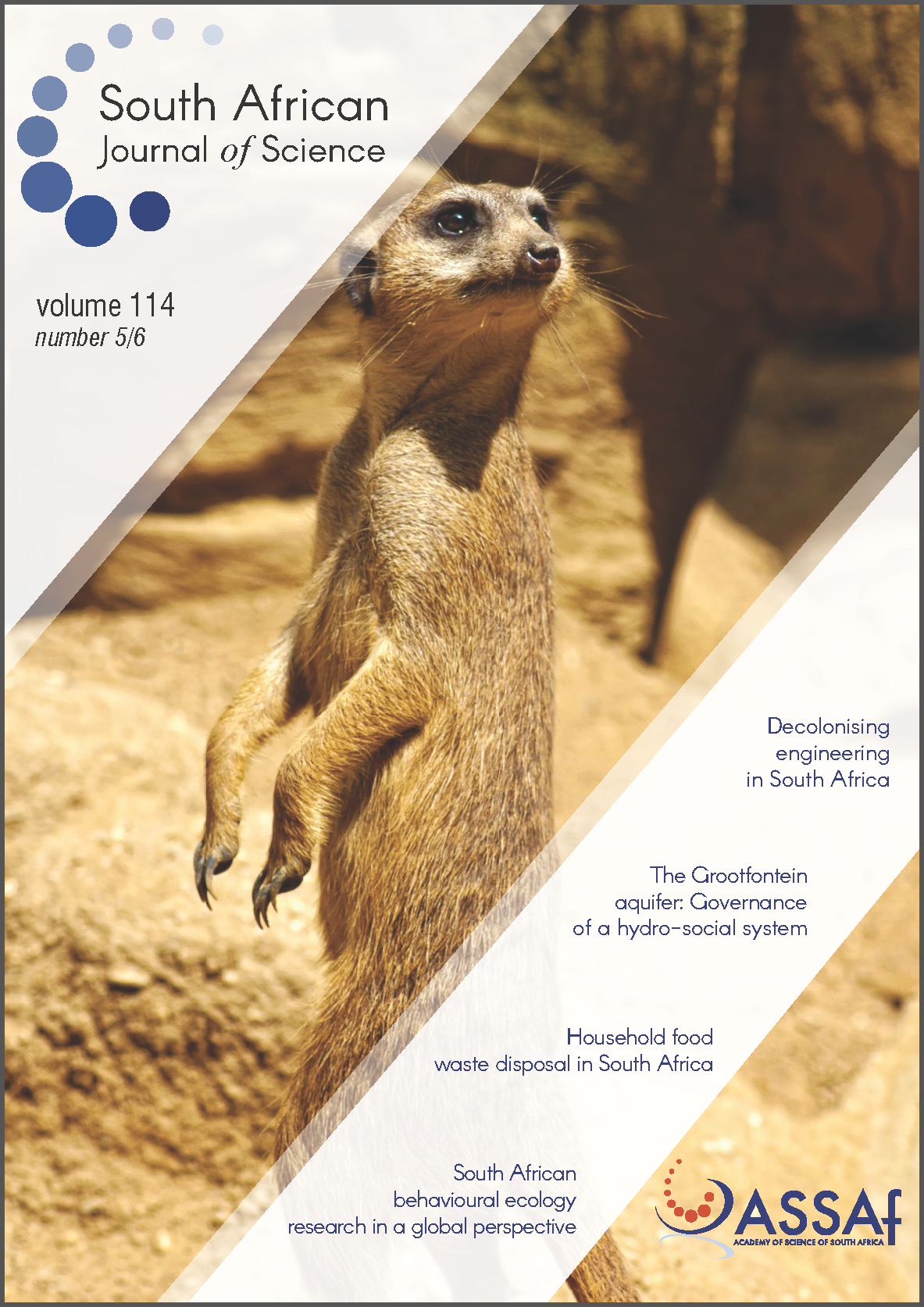The Grootfontein aquifer: Governance of a hydro-social system at Nash equilibrium
DOI:
https://doi.org/10.17159/sajs.2018/20170230Keywords:
groundwater, management, institutions, transdisciplinarity, resilienceAbstract
The Grootfontein groundwater aquifer is important to the water supply of the town Mahikeng in the North West Province of South Africa and to commercial agriculture in the Province, but the water table has fallen by up to 28 m as a consequence of over-abstraction since the 1980s. Institutional and hydrogeological issues impact the aquifer in complex ways, described here as a hydro-social system. Whilst the hydrogeology is well understood and South African laws provide for sustainable groundwater governance, poor stakeholder collaboration and other institutional problems mean that the overabstraction is likely to persist – an example of an undesirable Nash equilibrium. The Grootfontein aquifer case shows that groundwater underpins wider social-ecological-economic systems, and that more holistic management – taking the institutional context into account – is needed to underpin economic growth, employment and other public outcomes.
Significance:
- The cost of better natural resource stewardship, including groundwater, is likely to be considerably less than the losses that occur when it is absent.
- If local groundwater was better managed, it could make water supplies in Mahikeng cheaper and more reliable, which would in turn support local economic growth and employment.
Published
Issue
Section
License

This work is licensed under a Creative Commons Attribution 4.0 International License.

All articles are published under a Creative Commons Attribution 4.0 International Licence
Copyright is retained by the authors. Readers are welcome to reproduce, share and adapt the content without permission provided the source is attributed.
Disclaimer: The publisher and editors accept no responsibility for statements made by the authors
How to Cite
- Abstract 1330
- PDF 1281
- EPUB 226
- XML 307












.png)